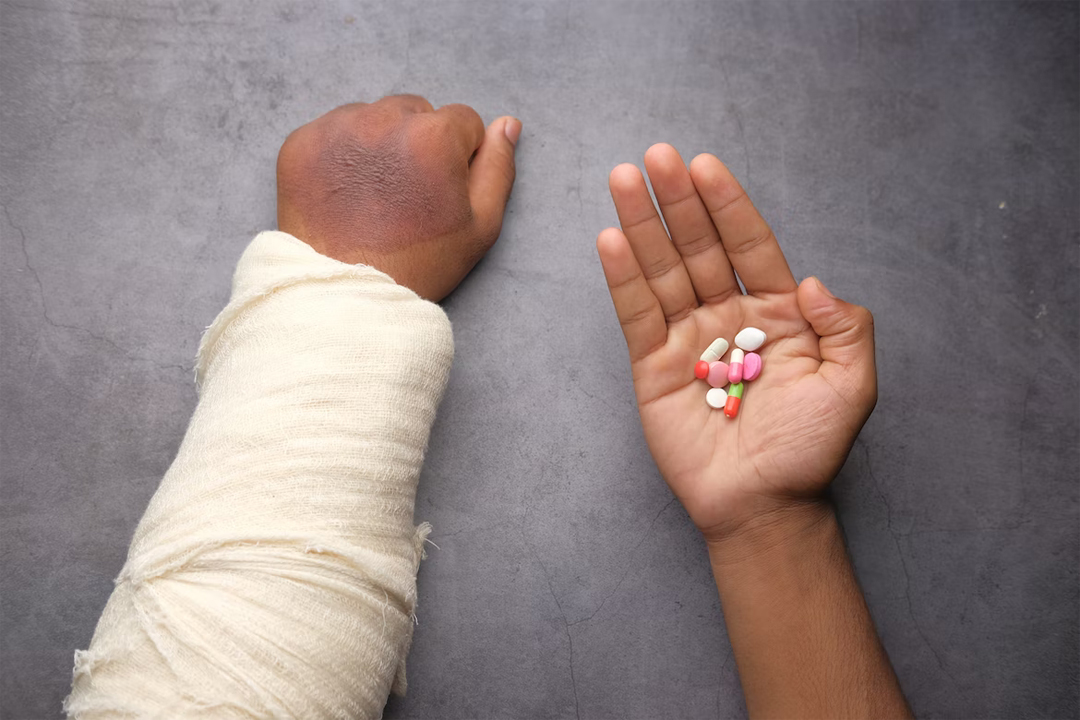
Injuries can happen anywhere and at any time. They can be the result of something as simple as tripping over a curb, or as serious as being in a car accident. And they can range from mild to life-threatening. No matter what kind of injury you have, though, one thing is certain: You want to heal as quickly as possible.
There are a lot of different products on the market that claim to help with healing. But which ones work? Here are some substances that have been proven to help with wound healing:
Peptide-Based Products
Peptides are tiny molecules that play a big role in the body. They are made up of amino acids, the building blocks of protein, and they perform a variety of important functions. And one of their roles is to help with wound healing.
Peptides work by promoting cell growth and migration. They also help to create new blood vessels, which is necessary for wound healing. Some peptides promote the production of collagen, which is essential for repairing damaged tissue. They are effective in helping to heal a wide variety of wounds, including burns, lacerations, and even chronic wounds like diabetic ulcers.
Many peptide-based products on the market can be used to help with wound healing. Some are available over the counter, while others require a prescription from a doctor. Some topical creams and ointments can be applied directly to the wound site. And there are oral peptide supplements that can be taken daily to boost wound healing.
Antioxidants
Antioxidants are substances that help to protect cells from damage. They do this by scavenging harmful molecules called free radicals. Free radicals are produced during the wound-healing process, and they can delay or even prevent wounds from healing properly. Free radicals can also cause inflammation, which can further complicate the healing process.
That’s why it’s important to get plenty of antioxidants when you’re trying to heal a wound. Antioxidant-rich foods include fruits and vegetables like berries, dark leafy greens, and tomatoes. You can also get antioxidants from nuts, seeds, and whole grains. And many supplements contain antioxidant-rich herbs and spices like turmeric, ginger, and green tea. Just be sure to talk to your doctor before taking any supplements, as some can interact with medications.
Coenzyme Q10
Coenzyme Q10 (CoQ10) is a substance that is found naturally in the body. It’s involved in many important functions, including energy production and cell growth. CoQ10 levels decline as we age, and this can lead to a variety of health problems. So, to stay healthy, it’s important to make sure that you have enough CoQ10.
Studies have shown that CoQ10 can help to improve wound healing by promoting collagen production and boosting cell turnover. CoQ10 is effective in helping to heal wounds, burns, and ulcers. It is available in supplement form, and it can also be applied topically to the skin. It is also often included in products that are marketed for wound healing and even anti-aging. This is because CoQ10 has powerful antioxidant properties that can help to protect the skin from damage.
Zinc-Oxide Creams
Zinc is an essential mineral that plays a role in many important processes in the body. It’s necessary for cell growth and division, immune function, and wound healing. That’s why zinc-oxide creams are effective in helping wounds heal.
Zinc-oxide creams work by promoting the production of collagen and other substances that are necessary for wound healing. They also help to reduce inflammation and fight infection. And they can even help to reduce scarring. Zinc-oxide creams are available over the counter and can be applied directly to the wound site.
Hyaluronic Acid
Hyaluronic acid is a substance that is found naturally in the body. It’s a major component of connective tissue, and it plays an important role in wound healing.
Hyaluronic acid works by attracting water to the wound site. This helps to keep the area hydrated, which is essential for proper healing. It also helps to reduce inflammation and promote the production of collagen. Hyaluronic acid is available in topical form and can be applied directly to the wound site. It’s also available in injectable form, but this should only be done by a doctor.
D-Panthenol
While it’s not a substance that you’ll find in nature, D-panthenol is a synthetic compound that is effective in helping wounds heal. D-panthenol is a form of pantothenic acid, which is a vitamin that plays an important role in wound healing. It works by helping to improve the moisture content of the wound, which helps to keep it from drying out and becoming infected.
Depending on the severity of your wound, D-panthenol can be applied topically as a cream or ointment, or it can be taken orally in the form of capsules or tablets. It’s important to follow the directions on the product label, as too much D-panthenol can delay wound healing.
Vitamin C
Vitamin C is a water-soluble vitamin that plays a crucial role in wound healing. It helps to promote the production of collagen, which is necessary for repairing damage to the skin and other tissues. Vitamin C also helps to reduce inflammation and promotes the formation of new blood vessels.
There are many ways to get vitamin C into your system. You can find it in citrus fruits like oranges and lemons, as well as in berries, tomatoes, and leafy green vegetables. You can also find different vitamin C supplements on the market. Just be sure to talk to your doctor before taking any supplements, as too much vitamin C can cause problems like diarrhea and abdominal cramping.
Comments
comments